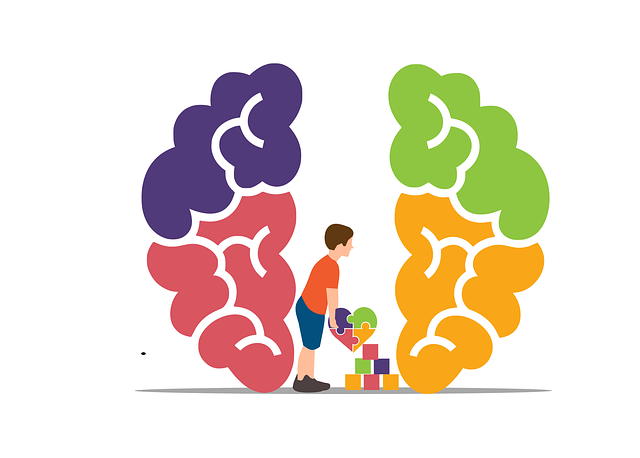Arvada Functional Neurological Disorder Therapy (AFNT) emphasizes the power of self-care as a key component in managing complex neurological disorders and enhancing overall well-being. By prioritizing physical, mental, and emotional health through practices like compassion cultivation and journaling, individuals can improve their quality of life and build resilience against stress. AFNT tailors self-care strategies to meet individual needs, addressing work-life balance, relationships, and physical health to prevent burnout among healthcare providers and promote holistic healing. Through mindfulness exercises and community outreach, AFNT fosters emotional intelligence and encourages consistent self-care behaviors for improved patient care and enhanced performance.
In today’s fast-paced world, self-care is not a luxury but a necessity. Understanding and prioritizing self-care practices can significantly impact overall well-being, fostering resilience and enhancing quality of life. This article explores the transformative power of self-care, offering insights into identifying personal needs, integrating practices into daily routines, and highlighting the crucial role of Arvada Functional Neurological Disorder Therapy in facilitating this journey.
- Understanding Self-Care and its Impact on Overall Well-being
- Identifying Personal Self-Care Needs for Effective Therapy
- Integrating Self-Care Practices into Daily Routines
- The Role of Arvada Functional Neurological Disorder Therapy in Enhancing Self-Care Journey
Understanding Self-Care and its Impact on Overall Well-being

Self-care is a fundamental aspect of maintaining and enhancing overall well-being. It involves intentional actions taken to nurture and support one’s physical, mental, and emotional health. By prioritizing self-care, individuals can improve their quality of life and develop resilience in managing stress and challenges. This process is particularly crucial for those with functional neurological disorders (FNDs), such as those seeking Arvada Functional Neurological Disorder Therapy, as it empowers them to take control of their symptoms and overall health.
Practices like compassion cultivation and empathy-building strategies play a significant role in self-care routines. For instance, journaling about one’s feelings and experiences can serve as a powerful Mental Wellness Journaling Exercise, fostering self-awareness and emotional regulation. These practices create a sense of safety and kindness towards oneself, which is essential for healing and personal growth. Understanding and incorporating such self-care techniques can profoundly impact an individual’s ability to navigate life’s complexities and promote overall mental wellness.
Identifying Personal Self-Care Needs for Effective Therapy

Identifying your personal self-care needs is a pivotal step in embarking on an effective therapy journey, especially when dealing with complex conditions like Arvada Functional Neurological Disorder Therapy (AFNT). Understanding one’s unique requirements allows for tailored strategies that cater to individual experiences. AFNT recognizes that what works for stress management in one person may differ significantly from another, given the intricate nature of neurological disorders and their impact on emotional regulation.
This process involves introspection and assessing various aspects of life, including work, relationships, physical health, and mental well-being. By acknowledging and prioritizing self-care, individuals can foster resilience against burnout, a common challenge among healthcare providers. Incorporating stress management workshops and organizing support networks are essential components of this journey. These initiatives not only enhance emotional regulation but also serve as powerful tools in the ongoing pursuit of holistic well-being.
Integrating Self-Care Practices into Daily Routines

Integrating self-care practices into daily routines is a transformative step for anyone, especially those managing conditions like Arvada Functional Neurological Disorder Therapy (AFNDT). It’s not just about taking time for oneself but making it an integral part of one’s day. Start with small, consistent actions such as dedicated moments for mindfulness or engaging in hobbies that foster self-awareness exercises. These practices can help individuals reconnect with their feelings and needs, enhancing their overall mental health awareness.
For healthcare providers, who often face high-stress levels and the risk of burnout, incorporating self-care becomes crucial. Adopting strategies like regular exercise, adequate sleep, and setting clear boundaries between work and personal life are key to preventing burnout. By prioritizing self-care, individuals can better serve their patients, as a refreshed and balanced mind is essential for optimal performance and empathy in healthcare settings.
The Role of Arvada Functional Neurological Disorder Therapy in Enhancing Self-Care Journey

Arvada Functional Neurological Disorder Therapy (AFNDT) plays a pivotal role in empowering individuals on their self-care journey by addressing underlying neurological issues that often hinder daily practices. This holistic approach recognizes the intimate connection between physical and mental health, tailoring treatments to restore balance and enhance overall well-being. Through specialized techniques, AFNDT facilitates improvements in emotional intelligence, which is crucial for mindful self-care.
The therapy’s focus on compassion cultivation practices further enriches the self-care experience. By fostering a culture of empathy and understanding, individuals learn to navigate life’s challenges with resilience and kindness towards themselves. This, coupled with community outreach program implementations, creates a supportive network that encourages consistent self-care behaviors. As a result, AFNDT doesn’t merely treat symptoms; it equips individuals with the tools to embrace and sustain a fulfilling self-care routine.
Self-care is a transformative journey that requires understanding, identification, and consistent practice. By integrating self-care practices into daily routines, individuals can significantly improve their overall well-being. This article has explored various aspects of self-care improvement, from the foundational impact on mental health to practical tips for incorporation. Notably, Arvada Functional Neurological Disorder Therapy plays a pivotal role in guiding individuals toward a healthier self-care journey, offering tailored strategies for effective therapy and enhanced lifestyle adjustments. Embracing these practices can lead to a more balanced, fulfilling life.














